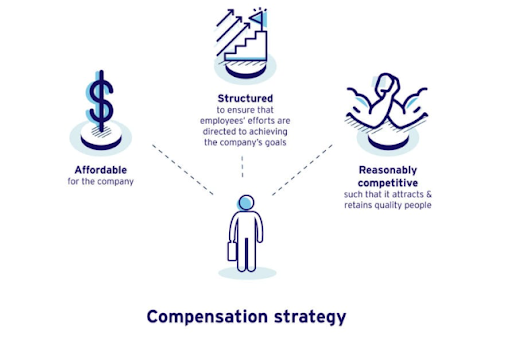10 Insider Tips for Successful Executive Search Strategies
Securing the right executive talent is a must for businesses to stay competitive.
Companies grapple with the complexities of finding suitable candidates and ensuring they align with the long-term vision and culture.
If you’re overwhelmed by the executive search task, you’re not alone.
Fortunately, you’ve landed on the right page to navigate this challenge confidently.
In this article, you'll discover:
The current trends in executive search
10 tips for improving your executive search strategies
Keep reading to make the most of these 10 insider tips for a successful executive search strategy.
Current Trends in Executive Search
Executive search is transforming significantly, driven by technological advancements, shifting market dynamics, and evolving leadership requirements.
Here are the most notable current trends:
Diversification of Leadership Roles: Organizations increasingly seek leaders with diverse backgrounds and skill sets. This includes not only demographic diversity but also cognitive and experiential diversity. Companies recognize that a varied leadership team can offer broader perspectives, foster innovation, and enhance decision-making capabilities.
Emphasis on Soft Skills: There's a growing appreciation for soft skills such as emotional intelligence, adaptability, and the ability to inspire and motivate. These competencies are now as critical as technical expertise, with companies looking for leaders who can navigate complex interpersonal dynamics and lead with empathy.
Digital and Technological Proficiency: In the digital age, executives must leverage technology proficiently to drive business outcomes. This goes beyond understanding digital tools; it involves strategic thinking about how technology can create new business models and opportunities. Executive search criteria now routinely include digital literacy as a key requirement.
Advanced Data Analytics in Search Processes: Executive search firms employ sophisticated data analytics and AI tools to identify candidates more efficiently. These technologies enable deeper insights into candidates' experiences, competencies, and potential cultural fit, leading to more informed decision-making.
Focus on Agility and Resilience: The uncertain global business environment demands agile, resilient leaders capable of leading through change. Companies seek executives who have successfully navigated crises and can quickly adapt to evolving business landscapes.
10 Insider Tips for Successful Executive Search Strategies
Taking all the above changes into account, here are ten excellent tips to power your executive search:
1) Leverage your Network for Referrals and Insights
When executing an effective executive search strategy, leveraging your network for referrals and insights stands out for its ability to connect you directly to top-tier talent.
Here's how to make this approach work for you:
Map Your Network: Begin by thoroughly mapping your professional and personal networks. This includes industry acquaintances, former colleagues, and notable business leaders whose judgment you trust. Aim to identify those who hold influential positions or are well-regarded within your sector.
Engage with Specificity: Avoid vague requests. Instead, articulate the unique challenges and prospects associated with the role. Providing a detailed candidate profile helps your contacts visualize who in their network would fit the role and be open to new opportunities.
Seek Insights: Use these interactions as a two-way street to gain insights into the role and its significance within the industry. This feedback can be instrumental in refining your understanding of the ideal candidate.
Reciprocity is Key: Executive searches are most successful when they are mutual exchanges. Be prepared to offer your assistance and insights in return. This practice cultivates a richer and more supportive network environment for future searches.
Strategically leveraging your network in this manner allows you to tap into a wealth of potential candidates and industry insights.
2) Define the Role and Ideal Candidate Profile Clearly
Precision in understanding and outlining the role and the ideal candidate's profile ensures your efforts are directed toward qualified candidates.
Here’s how to harness this strategy effectively:
Engage in Thorough Role Analysis: Begin by diving deep into the role's essence. This involves going beyond the basic job description to grasp the position's unique challenges, opportunities, and strategic importance. Understanding the specific objectives the role aims to fulfill, both immediately and in the long term, is crucial.
Pinpoint Key Skills and Attributes: Armed with a detailed analysis, identify the specific skills, experiences, and personal qualities vital for success in the role. It's important to distinguish between non-negotiable qualifications and those that can be developed, focusing on finding a candidate who embodies the essence of what the role demands.
Craft a Comprehensive Candidate Profile: Convert your analytical insights into a detailed candidate profile, incorporating professional experience, leadership capabilities, technical expertise, and cultural alignment. This profile ensures that your search is aligned with finding someone who fits the role on paper and can truly excel in the organizational context.
Ensure Stakeholder Alignment: Share this detailed profile with all stakeholders involved in the hiring process. Achieving consensus on the role and candidate expectations upfront can significantly streamline the search process.
Remember: Employing a detailed, analytical approach to defining the role and candidate profile sets a solid foundation for your executive search. This directs your efforts toward individuals who can truly contribute to your organization’s vision and goals.
3) Use a Multi-channel Approach for Candidate Sourcing
To enhance the success of your executive search, embrace a multi-channel strategy to broaden your search scope, tapping into both traditional and digital realms to uncover talent.
Here's how to maximize its potential:
Blend Traditional with Digital: Integrate channels like executive search firms and networking events with digital platforms like LinkedIn and industry-specific forums. This strategy ensures you reach a diverse candidate pool, including passive talents not actively on the job market.
Utilize Social Media for Deeper Insights: Platforms like LinkedIn and X (formerly Twitter) are invaluable for gaining insights into a candidate’s professional interests and thought leadership. Use these platforms to assess their suitability beyond the resume.
Personalize Your Outreach: When reaching out directly, customize your message based on insights gained through your multi-channel research. Highlight how the role aligns with the candidate's career aspirations and contributions.
Stay Engaged with Industry Circles: Regular involvement in industry events and staying abreast of sector publications can lead you to potential candidates who are leaders and influencers in their field.
Pro tip: Adopting a multi-channel approach provides a richer understanding of the candidate landscape, facilitating more strategic and informed hiring decisions.
4) Prioritize Soft Skills and Cultural Fit
Focusing on soft skills and cultural fit allows you to select a leader who aligns with your organizational ethos and ensures a smoother integration.
Here's how to effectively incorporate this focus into your executive search strategy:
Define Your Organizational Culture: Clearly articulate the values, behaviors, and cultural nuances that define your organization. Understanding your culture profoundly allows you to identify candidates who will thrive within it.
Incorporate Soft Skills in the Candidate Profile: Alongside technical skills and experience, include essential soft skills such as leadership style, communication abilities, and adaptability in your candidate profile. These traits typically indicate how well an executive will integrate and lead.
Develop Behavioral Interview Questions: Craft interview questions that delve into how candidates have demonstrated these soft skills and cultural alignment in past roles. Questions should encourage candidates to share specific examples that reveal their interpersonal skills and approach to leadership.
Engage in Multiple Interactions: Beyond formal interviews, consider informal settings or discussions with broader team members to observe the candidate's interaction style and fit with potential colleagues.
5) Implement a Structured Interview Process
A structured interview process is critical for unbiased, comprehensive candidate assessment because it enhances the reliability of your executive search, ensuring candidates are fairly assessed on their abilities to succeed in the role.
Here's how to leverage it in your executive search:
Standardize Interview Questions: Develop a set of core questions related to the role's key responsibilities and the candidate's experience, leadership skills, and problem-solving abilities. This ensures each candidate is evaluated against the same criteria, facilitating fair comparison.
Include Diverse Interviewers: Engage multiple stakeholders from various organizational levels and functions to participate in the interview process. This diversity in perspective can help assess cultural fit and leadership impact from different angles.
Train Interviewers: Train your interviewers to ask open-ended questions and objectively evaluate responses. This approach minimizes bias and ensures a focus on the qualities that matter most for the role.
Use Behavioral and Situational Questions: Incorporate questions that require candidates to describe past experiences and how they would handle hypothetical situations. This approach gives insight into their thought processes, problem-solving skills, and potential for future performance.
Systematically Evaluate Responses: Establish a scoring system for responses to maintain objectivity. After interviews, convene your interview panel to discuss and compare notes, ensuring a comprehensive evaluation of each candidate.
6) Maintain Confidentiality Throughout the Search
Confidentiality is paramount in executive searches, protecting both your organization's and candidates' interests. As a result, you can create a safe environment for candidates to engage with your search, protecting their privacy and your organization's interests.
Here’s how to ensure it:
Communicate Confidentiality Early: From the outset, make it clear to all parties involved—internal teams, candidates, and any third-party firms—that confidentiality is a priority. This sets the expectation that sensitive information must be handled with care.
Use Non-Disclosure Agreements (NDAs): Where appropriate, have candidates and any external partners sign NDAs. NDAs formalize the commitment to confidentiality and protect proprietary information.
Limit Information Sharing: Share candidate information only with those directly involved in the hiring decision. This approach minimizes the risk of leaks and ensures that sensitive details about the search and candidates are tightly controlled.
Conduct Discreet Outreach: When approaching potential candidates, especially those not actively seeking new opportunities, do so discreetly to avoid jeopardizing their current positions. Frame discussions in a way that respects their current commitments.
Secure Communication Channels: Use secure, encrypted communication methods to share sensitive documents and discussions. The purpose is to prevent unauthorized access to confidential information.
7) Be Transparent about the Role and Expectations
Transparency is a cornerstone of attracting the right executive talent. It ensures candidates have a clear understanding of the role, the organization's challenges, and the expectations set upon them. Even better, you can attract candidates who are capable and genuinely aligned with the role's demands and the organization's culture.
Here's how to apply this effectively:
Articulate Clear Role Responsibilities: Ensure the job description and discussions clearly outline the role’s responsibilities, objectives, and challenges. This clarity helps candidates assess their fit and interest in the position genuinely.
Discuss Organizational Challenges: Be open about the current challenges your organization faces. Candidates should understand what they are stepping into, including any immediate issues they will be expected to address. This honesty builds trust and ensures candidates are prepared for the reality of the role.
Set Clear Expectations: Communicate the role's performance expectations and success metrics. Candidates should know how their performance will be evaluated and what achievements are expected in the short and long term.
Offer Insight into Organizational Culture: Provide an honest overview of the company culture. Cultural fit is crucial for long-term success, and understanding the working environment is vital for candidates.
8) Offer a Competitive and Compelling Compensation Package
Crafting a competitive and personalized compensation package demonstrates your commitment to securing top talent.
Here's how to ensure your offer stands out:
Research Market Standards: Begin by thoroughly researching compensation trends within your industry for similar roles. This ensures your offer is competitive and in line with current market expectations.
Consider Total Compensation: In addition to base salary, include bonuses, equity options, and other benefits in your package. Highlight unique benefits that differentiate your offer, such as flexible working arrangements, professional development opportunities, or wellness programs.
Tailor to Candidate Priorities: Understand the priorities and motivations of your top candidates. Some may value long-term equity growth over immediate cash compensation, while others prioritize work-life balance.
Be Transparent and Open to Negotiation: Present the compensation package transparently and be open to discussions and negotiations. This openness demonstrates respect for the candidate’s values and fosters positive engagement.
9) Utilize Executive Search Firms when Necessary
Engaging with executive search firms can significantly enhance your recruitment strategy by tapping into their expertise and networks. Basically, you get access to a wider pool of qualified candidates and industry insights.
Here’s how to leverage their services effectively:
Select the Right Firm: Choose a firm with a strong track record in your industry or for the specific role you're filling. Their established networks and understanding of the market nuances can prove invaluable.
Clearly Define Your Needs: Articulate the role, desired candidate profile, and organizational culture to the search firm. Clear communication ensures they search for candidates who truly match your requirements.
Leverage Their Expertise: Take advantage of the firm's experience in salary negotiations, candidate assessment, and market trends. Their insights can help refine your offering and approach to attract top talent.
Maintain Open Communication: Establish a feedback loop with the search firm. Regular updates and discussions can help refine the search criteria and approach as needed, ensuring alignment throughout the process.
10) Foster Strong Relationships with Candidates throughout the Process
Prioritizing strong, respectful relationships with candidates throughout the search process enhances their experience and bolsters your organization’s reputation.
Here's how to achieve this:
Communicate Regularly: Keep candidates informed throughout the search process. Regular updates about their status and next steps demonstrate respect for their time and interest.
Provide Constructive Feedback: Offer candid feedback after interviews, regardless of the outcome. Earnest responses aid their professional development and help build a positive brand image.
Personalize the Experience: Tailor your communication and interactions to recognize each candidate's unique value and background. This personal touch can set your organization apart in the eyes of high-caliber executives.
Stay Engaged Post-Hire: After a successful hire, continue to engage with the candidate to ensure a smooth transition into their new role. This support reinforces their decision to join your organization and aids their long-term success.
Improve Your Executive Search Strategy Today
In this article, we've shared 10 key insider tips to help you refine your executive search strategies.
These insights aim to make your hunt for top-tier executives more efficient and effective.
Incorporating these strategies will significantly enhance your ability to identify and attract the right leaders for your organization.
Remember, success in executive search doesn't happen by accident. Apply the tips above thoughtfully, and you'll be well on your way to building a powerful executive team to drive your company forward.
































![From the Recruiter’s Perspective: Common Myths About Headhunting Debunked [Part 1: For Companies]](https://images.squarespace-cdn.com/content/v1/50baa49de4b0e51d69257e33/1706299230589-55FFQ7Y6OFP22Y6JK625/From+the+Recruiter%E2%80%99s+Perspective+Common+Myths+About+Headhunting+Debunked+%5BPart+1+For+Companies%5D.jpg)








